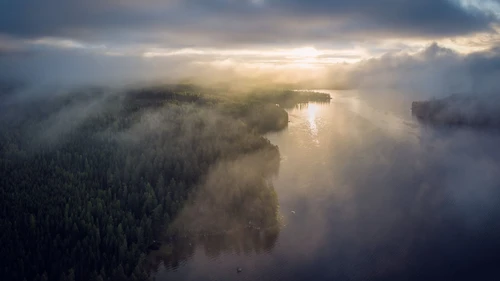At stake is the increase of national commitments to limit climate change according to the 1.5 degrees global warming target, adaptation to climatic changes, mobilisation of finance and the further detailing of working together to deliver as well as climate progress reporting. A host of new commitments from countries and the private sector have materialised and more are expected. Nordea is represented in several panel discussions..
At many of the events, the voices are clear – never has the concern over climate change been stronger, never has there been more focus on world leaders to set the path towards net-zero emissions by 2050 and a more sustainable use of the planet’s resources. ‘Public – private’ is mentioned several times – the public sector cannot pull in the money needed for change alone, the private sector must join in.
Stark message to world leaders
Immediately ahead of COP26, leaders of G20 countries – representing >80% of emissions – committed to keeping global warming at 1.5 degrees. G20 recognised that the current climate ambitions would not be sufficient and that increased actions were needed to reach net-zero emissions by mid-century – this wording rather than the year 2050 should be seen in the light of China targeting net zero by 2060 and India announcing a net zero target for 2070 and interim targets for 2030; this demonstrates the ambitions of the world’s sixth largest and one of the most rapidly growing economies.
During his opening speech at COP26 on 1 November, United Nations Secretary General, Mr Antonio Guterres, delivered a stark message to world leaders. The world’s dependency on fossil fuel was singled out to push “humanity to the brink” – “either we stop it, or it stops us” – and leaders were warned of the looming climate disaster. An equally powerful message was delivered on nature: “… enough of brutalising biodiversity, …enough of treating nature like a toilet.” World leaders were reminded that despite climate action announcements, the world was far from being on track to 1.5 degrees; rather it was heading for 2.7 degrees. Some bright spots were seen, with certain countries having made credible commitments to net-zero emissions by mid-century and the private sector waking up. The Tuesday announcement on the Global Methane Pledge which more than 100 countries, including all Nordic countries, now are part of, expressed some progress.
Mr. Guterres also mentioned the Net-Zero Asset Owners Alliance – to which Nordea also is a signatory — as the ‘gold standard for credible commitments and transparent targets … catalysing change across industries’. He also urged donors to reach the earlier commitments to support developing countries with USD 100 billion a year in public climate finance, something the world has still failed to do.
Glasgow Leader’s declaration on forests and land use
On 2 November 2021, a new declaration on forests and land use was signed by more than 100 countries across the world. Signatories, which include key forest-rich countries such as Brazil, Russia, the Demographic Republic of Congo, China, the US, Canada as well as the EU and the Nordic countries, commit to working together to halt and reverse forest loss and land degradation by 2030.
In the Glasgow Leader’s declaration on forests and land use, countries reinstate their commitment to the protection of forests to achieve sustainability and limit climate change and emphasise how the sustainable management of forests is intrinsically linked to production and consumption, trade, finance and investment and the livelihood of millions of people.
To succeed, trade and commodity production and consumption must not lead to deforestation and land degradation, while recognising the rights of indigenous peoples and rural communities. More financial resources will be directed to sustainable agriculture and forestry and to the conservation and restoration of forests, supported by robust policies.
More to look out for in negotiations over the coming ten days:
We mentioned to look out for the USD 100 billion per year pledge by developed countries in public financing in our latest news on COP26. The UK Prime Minister’s Finance Adviser for COP26 Mark Carney wrote in Financial Times on the first day of the negotiations that we should also take the USD 100 trillion perspective of including private finance and that a country by country platform is needed to help countries get access to a mix of public and private financing for realising their transition plans to net zero.
The most vulnerable and worst hit countries by climatic changes already taking place, eg displacing more than 30 million people in 2020 alone, are according to sources quoted here seeking Loss & Damage compensation from the historic emitters in industrialised countries. Some estimates suggest the cost of loss and damage to be between USD 290 and 580 billion annually by 2030 in developing countries alone.
So this is not the same as adaptation finance, which is financing the ability to adapt. This is compensating irreversible losses. The host country Scotland is getting praise by least developed countries and civil society for having pledged a first GBP 1 million into a fund to help developing countries deal with loss and damage. The first developed country to make an explicit commitment towards loss and damage and the question in Glasgow now is if others will follow suit.
Over the next few days we expect more announcements and communications around the private financial sector, which is due 3 November, and what we bring to the table.



